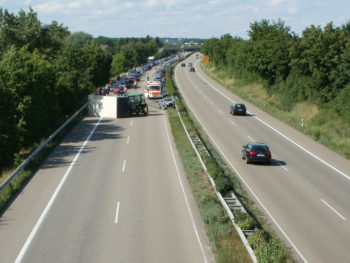New EU agreement could see improved cross border road safety standardisation
Roads across the EU will be subject to minimum road infrastructure standards, in what’s being called a significant boost for road safety.

The new rules would make it compulsory for vulnerable road users to be taken into account for the first time when planning new roads
The legislation follows a provisional deal reached today. Existing EU rules require governments carry out regular road safety audits, identify high-risk sites and prioritise safety when building new roads. However, the legislation currently applies only to major European roads known collectively as the Trans-European Transport Network (TEN-T).
The agreement today plans to extend these rules to all motorways, primary roads and non-urban roads that receive EU funding. For the first time, the legislation will also require road management authorities to take into account the safety of vulnerable road users, such as pedestrians and cyclists when planning and managing road infrastructure.
According to research for the European Commission, the proposed measures could save 3,200 lives and prevent more than 20,000 serious injuries over the period 2020-2030.
Ellen Townsend, Policy Director of the European Transport Safety Council said:
“This legislation contains the introduction of new procedures that will lead to better road design, better safety management, and more high risk sites being treated. Ultimately we would like to see this approach applied to every road in the EU – but this deal is nevertheless an important step forward.“
Road authorities will be able to choose some low-risk roads, or roads with little traffic to opt-out of the legislation. However, those decisions will be subject to oversight from the European Commission, who will also publish a map of roads covered by the rules.
In addition, the EU agreed that common specifications for road signs and markings should be developed, which could lead to a cross border commonality making it simpler for drivers to understand road regulations while travelling around Europe. This may also prove an important step in the development of higher levels of autonomous vehicles.
The informal political deal approved today will now have to be approved officially by both the European Parliament and Member States.

